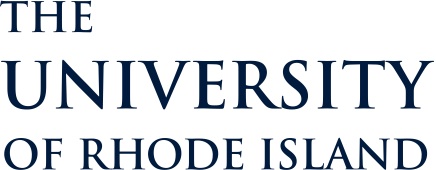Newswise — Terrorism in ports or on the high seas, a catastrophic natural disaster striking a center of global trade, and the disruption of oil supplies are among the scenarios that will be discussed at the first international conference on port security and marine transportation, which will be held at the University of Rhode Island Sept. 25 and 26.
The conference will bring together some of the top maritime, port and transportation security experts from around the world, along with representatives from academia, business and government agencies, to assess the risks to ports and maritime transportation, examine case studies, and identify emerging issues and research needs.
"Protecting port infrastructure from man- or nature-caused incidents is a major concern for public safety and the economy of the United States and most other countries," said Thomas Grigalunas, URI professor of natural resource economics and the conference co-chairman. "The issues faced are local, regional, national and international, and they are extraordinarily complex, requiring unprecedented levels of commitment, planning, research and coordination among many affected interests."
Featured speakers at the conference include Rear Adm. Craig Bone, the top security official at the U.S. Coast Guard; Stephen Flynn, catastrophic terrorism expert and author of America the Vulnerable; Yossi Sheffi, director of the Center for Transportation Logistics at the Massachusetts Institute of Technology; Christopher Koch, president of the World Shipping Council; Gary LaGrange, president of the Port of New Orleans; and William Riker, president of reinsurance company RenaissanceRE Holding.
According to Grigalunas, approximately $3 billion in goods are traveling in container ships to or from United States ports on any given day. These ships and containers and the ports they rely upon are potentially vulnerable to terrorists and natural disasters, and any disruption in the marine transportation network could have an enormous impact on the global economy.
"The global supply chain requires security at every step of the way," said Grigalunas, who has worked on marine transportation issues for 20 years with the United Nations and the International Maritime Organization. "It involves highly complex issues to ensure the safety of the logistics network that connects suppliers around the world with consumers of goods bought at Wal-Mart, General Motors and local stores in ways that are not often visible or appreciated."
Attendees of the conference will include leading international port officials, business representatives from the shipping, transportation and insurance industries, public officials, disaster planners, noted academics, maritime transportation researchers, and others interested in coastal disaster and security issues.
The conference is being held in conjunction with a meeting of the President's Council of the Global U8 Consortium, a group of eight universities from around the world that was formed to address emerging issues confronting the global community through collaborative research, education and building administrative capacity. Consortium members are the Royal Melbourne Institute of Technology (Australia), Xiamen University (China), Inha University (Korea), Meiji University (Japan), University of Le Havre (France), University of Haifa (Israel), University of Rhode Island, and University of Washington.
Sponsors of the conference are URI and its Transportation Center, Inha University, the Transportation Research Board of the National Academies, Jungseok Research Institute of International Trade and Logistics, and the Global U8 Consortium. Support is also provided by the Korea Ministry of Maritime Affairs and Fisheries, Lloyd's List, the Korea Shipowners' Association, Lloyd's Freight Transport Buyer Asia, and the Korea Port Economic Association.
The conference registration fee is $250. For more information, visit http://www.uri.edu/outreach/GU8conference
